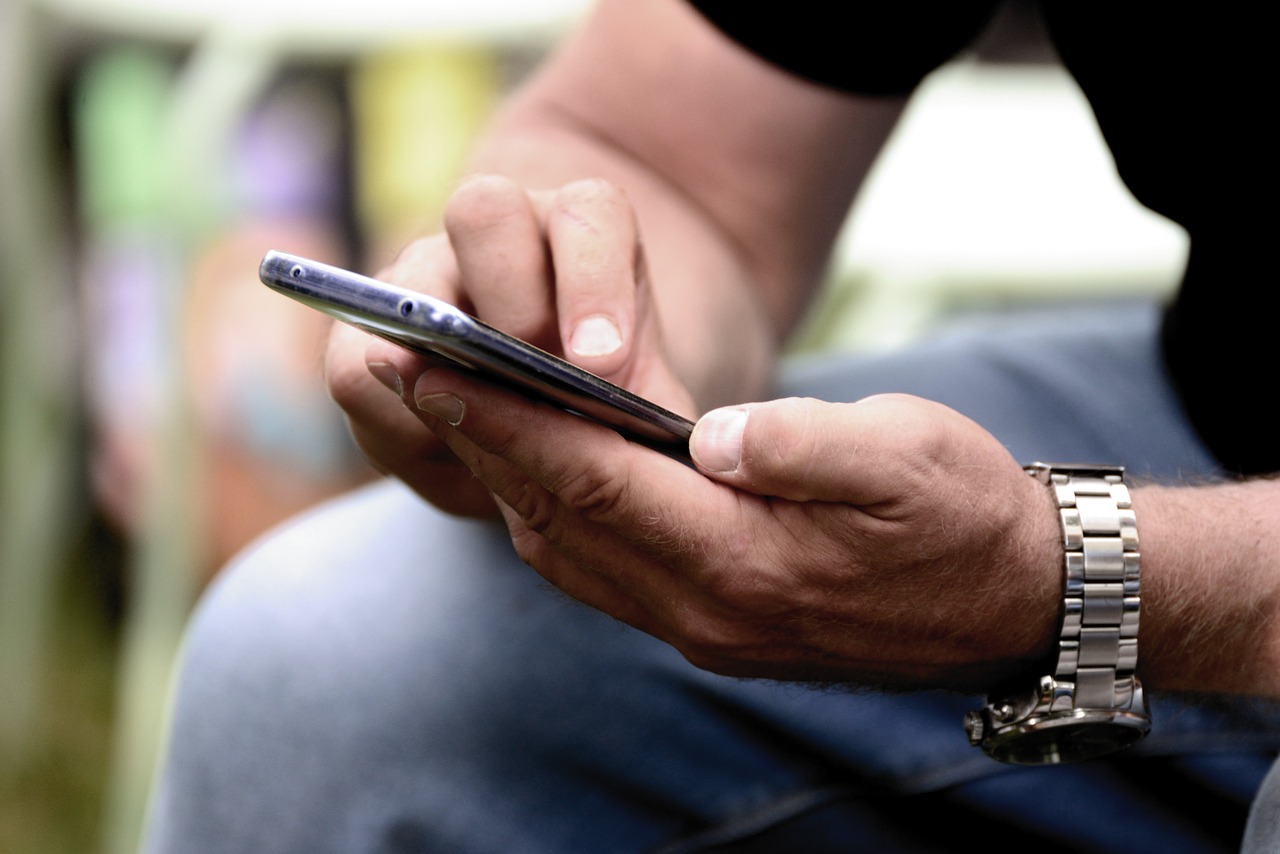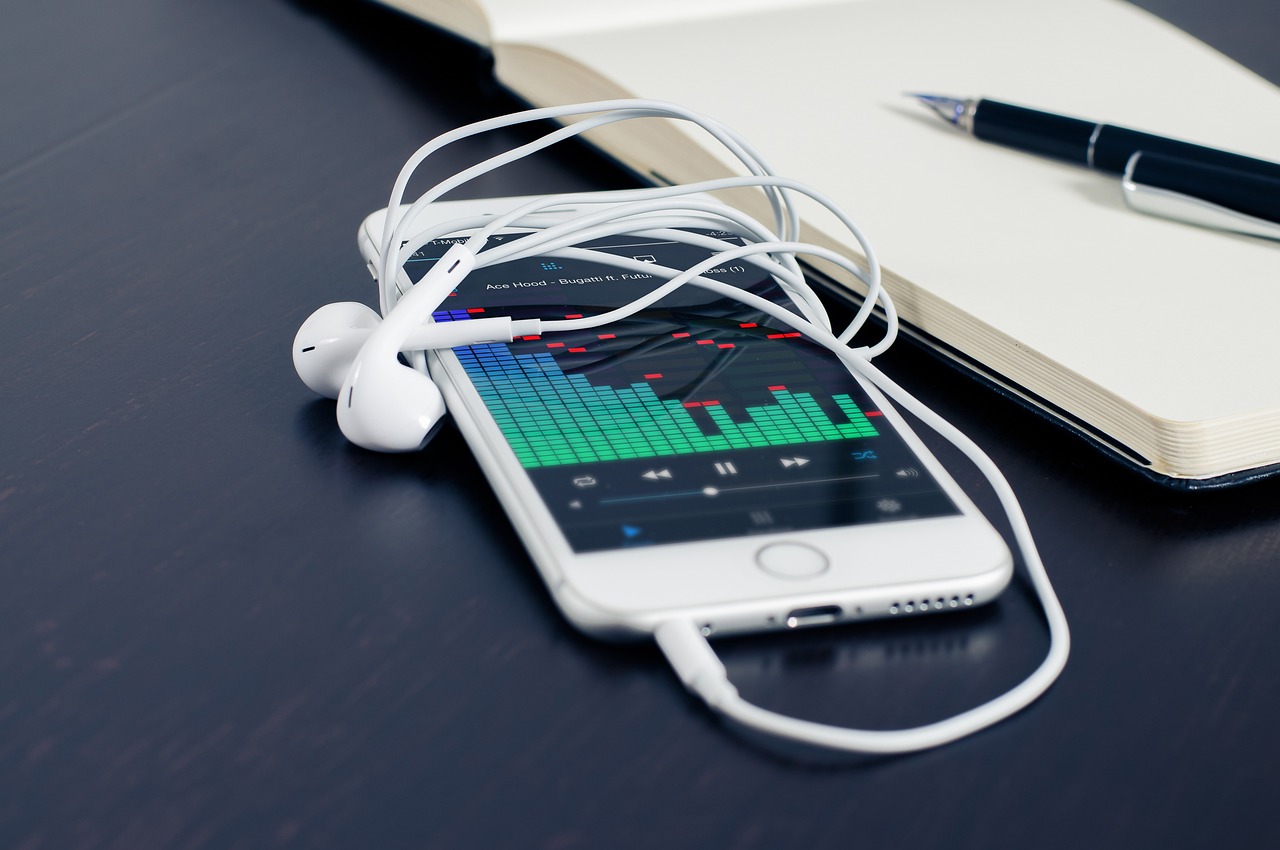Is Your Smartphone Vulnerable to Hacking?
In today's digital age, smartphones have become an integral part of our lives. They hold our personal information, financial data, and even our daily schedules. But have you ever stopped to think about how vulnerable these devices can be? With the increasing sophistication of cyber threats, understanding the potential risks associated with smartphone usage is more important than ever. Just like a house with multiple entrances, your smartphone has various entry points that hackers can exploit. This article will explore the ways your smartphone can be compromised, the signs that may indicate a hack, and practical steps you can take to enhance your device's security against cyber threats.
Smartphones are complex devices with numerous vulnerabilities that can be exploited by cybercriminals. From outdated software to insecure apps, the risks are everywhere. For instance, many users download apps from unofficial sources without realizing the potential dangers. These apps can contain malware designed to steal your personal information or take control of your device. Additionally, public Wi-Fi networks can be a hacker's playground, allowing them to intercept your data if you're not careful. In fact, a study found that over 50% of smartphone users do not use any form of security on their devices, leaving them wide open to attacks.
Recognizing the signs of a compromised smartphone is crucial. If you notice any unusual behavior, it might be time to investigate further. Here are some typical indicators that your device may have been hacked:
Have you ever experienced apps crashing unexpectedly or sending strange messages to your contacts? This erratic behavior can be a major red flag. Sometimes, hackers can manipulate your apps to perform actions without your consent. If an app starts acting weird, it might be worth uninstalling it or checking for updates. Remember, your smartphone should be a tool for convenience, not a source of anxiety.
Another sign of potential hacking is a sudden spike in your data usage. If you notice that your data is being consumed at an alarming rate, it could indicate unauthorized access to your device. Monitoring your data usage can help you identify unusual patterns. Most smartphones have built-in tools to track data usage, so make sure to keep an eye on those numbers. If something seems off, don't hesitate to investigate further.
A rapidly draining battery can also point to hacking. If your phone's battery seems to deplete faster than usual, it might be due to malicious apps running in the background. Assessing your battery health is essential; many smartphones come with battery usage stats that show which apps are consuming the most power. If you find an app using an excessive amount of battery without a good reason, it could be time to take action.
Taking proactive measures is essential for smartphone security. You wouldn't leave your front door unlocked, so why leave your phone vulnerable? Here are some practical tips to safeguard your device:
- Use strong, unique passwords for your accounts.
- Enable two-factor authentication wherever possible.
- Avoid downloading apps from untrusted sources.
By implementing these practices, you can significantly reduce the risk of falling victim to cyber threats.
Installing reputable security software can significantly enhance your smartphone's defenses. Think of it as a security guard for your device, monitoring for suspicious activity and blocking potential threats. Some of the best security apps available include:
| Security App | Features |
|---|---|
| McAfee Mobile Security | Anti-theft, app lock, and secure browsing. |
| Norton Mobile Security | Web protection, Wi-Fi security, and device tracking. |
| Kaspersky Mobile Security | Malware protection and privacy protection features. |
Choosing the right security software can make a world of difference in protecting your personal information and keeping hackers at bay.
Keeping your operating system and apps updated is vital for security. Software updates often include patches for known vulnerabilities that hackers could exploit. Think of it as a shield that evolves to keep up with new threats. So, when your phone prompts you to update, don’t ignore it! Regular updates can help fortify your device against potential attacks.
Adopting safe browsing habits can reduce the risk of hacking significantly. Just as you wouldn’t walk down a dark alley at night, you should also be cautious online. Here are some best practices:
- Recognize phishing attempts and avoid clicking on suspicious links.
- Use secure websites (look for "https://" in the URL).
- Be cautious about sharing personal information online.
By being vigilant and informed, you can navigate the internet safely and protect your smartphone from potential threats.
Q: How can I tell if my smartphone has been hacked?
A: Look for signs like unusual app behavior, unexpected data usage, or rapid battery drain.
Q: What should I do if I suspect my phone is hacked?
A: Change your passwords, uninstall suspicious apps, and run a security scan using reputable software.
Q: Are public Wi-Fi networks safe for smartphone use?
A: Public Wi-Fi can be risky. Always use a VPN when connecting to public networks to protect your data.

Understanding Smartphone Vulnerabilities
Smartphones have become an integral part of our daily lives, serving not just as communication tools but as gateways to our personal and professional information. However, with their growing complexity comes a plethora of vulnerabilities that can be exploited by malicious actors. Think of your smartphone as a house filled with valuable possessions. If the doors and windows are not secure, anyone can waltz in and take what they want. Similarly, smartphones have numerous entry points that can be exploited by hackers, such as outdated software, unsecured Wi-Fi networks, and even seemingly harmless apps.
One of the most common vulnerabilities arises from outdated operating systems and applications. When manufacturers release updates, they often include patches for security flaws that have been discovered. Failing to install these updates can leave your device open to attacks. For example, a well-known vulnerability in a popular app might be exploited by hackers to gain access to your personal data, much like leaving a backdoor unlocked in your house.
Another significant risk comes from public Wi-Fi networks. While convenient, these networks are often unsecured, making it easy for hackers to intercept data being transmitted. Imagine sending a postcard with sensitive information; anyone could read it along the way. This is essentially what happens when you connect to a public Wi-Fi network without a VPN. Your data can be easily accessed by cybercriminals lurking in the shadows.
Moreover, the apps we download can also be a source of vulnerability. Many users tend to download apps from unofficial sources, which can be a breeding ground for malware. Just like accepting a drink from a stranger at a party, downloading an app from an untrusted source can lead to disastrous consequences. Such apps may request unnecessary permissions, leading to potential data leaks and unauthorized access to your device.
Lastly, social engineering attacks are another way hackers can exploit smartphone vulnerabilities. These attacks rely on manipulating users into revealing personal information. For instance, you might receive a text message that looks like it's from your bank, asking you to verify your account details. It's like receiving a phone call from someone pretending to be a trusted friend, only to find out they were after your secrets all along. Being aware of these tactics is crucial in safeguarding your device.
In summary, understanding smartphone vulnerabilities is the first step towards protecting your device from potential hacks. By being aware of the risks associated with outdated software, unsecured networks, dubious apps, and social engineering tactics, you can take proactive measures to secure your smartphone. Remember, just as you would install locks on your doors and windows, ensuring your smartphone is fortified against cyber threats is essential in today's digital age.

Signs Your Phone May Be Hacked
Have you ever felt that nagging suspicion that your smartphone isn’t quite right? Maybe it’s acting like a moody teenager, throwing tantrums when you least expect it. Recognizing the signs that your phone may be hacked is crucial in today’s digital world, where cyber threats lurk around every corner. The sooner you spot these red flags, the quicker you can take action to protect your personal data and privacy.
One of the first things you might notice is unusual behavior of apps. Have you ever opened an app, only for it to crash unexpectedly or behave in ways that make you raise an eyebrow? If your once-reliable applications start sending strange messages or displaying ads that seem out of place, it’s time to investigate. These could be indicators of malicious software taking control of your device. Think of it like a friend who suddenly starts acting weird—trust your instincts!
Another significant warning sign is unexpected data usage. Picture this: you’re scrolling through your phone, and then you check your data usage only to find a sudden spike that doesn’t match your habits. This could mean that someone is using your phone without your permission, possibly even sending data to hackers. To keep tabs on your data, regularly check your usage statistics in your phone’s settings. If you notice anything fishy, it’s time to dig deeper.
And let’s not forget about battery drain issues. If your phone feels like it’s running a marathon, with the battery draining faster than a leaky faucet, you might have a problem. A rapidly draining battery can be a sign that malicious apps are running in the background, consuming resources and energy. To assess your battery health, go to your settings and look at which apps are using the most power. If you spot any unfamiliar or suspicious apps, consider deleting them immediately.
In summary, keeping an eye out for these signs can help you catch a hacking attempt before it spirals out of control. If you’re experiencing:
- Unusual app behavior
- Unexpected spikes in data usage
- Rapid battery drain
then it’s time to take action. Your smartphone is a gateway to your personal life, and protecting it should be a top priority.
Q: How can I tell if my phone has been hacked?
A: Look for signs like unusual app behavior, unexpected data usage, and rapid battery drain. If you notice any of these, investigate further.
Q: What should I do if I suspect my phone is hacked?
A: First, disconnect from the internet to prevent further access. Then, run a security scan using reputable software and change your passwords.
Q: Can I prevent my phone from being hacked?
A: Yes! Regularly update your software, use security apps, and practice safe browsing habits to enhance your smartphone's security.

Unusual Behavior of Apps
When it comes to smartphone security, one of the most alarming signs that your device may have been compromised is the . Imagine this: you're scrolling through your favorite social media app, and suddenly it crashes without warning. Or perhaps you receive a strange message from a friend who insists they never sent it. These scenarios are not just annoying; they can be red flags indicating that your phone has fallen victim to hacking.
Apps are designed to function smoothly, but when they start acting erratically, it’s time to investigate. Some common signs of unusual app behavior include:
- Frequent Crashes: If your apps are crashing more often than usual, it could mean that they are being manipulated or are under the influence of malware.
- Strange Notifications: Receiving notifications from apps that you don’t recognize or that seem out of context can signal unauthorized access.
- Unexplained Changes: If you notice settings or preferences in your apps changing without your input, this could be a sign of a breach.
Moreover, you should consider the possibility of malicious apps masquerading as legitimate ones. Cybercriminals often create fake apps that look identical to popular ones, tricking users into downloading them. Once installed, these apps can access personal data, track your activity, and even send messages on your behalf. To safeguard yourself, always download apps from reputable sources like the official app store for your operating system.
If you suspect that an app on your phone is behaving oddly, it’s crucial to take action. Start by uninstalling any suspicious apps immediately. You can also check your app permissions to see if any apps have access to more data than they should. For example, a simple flashlight app shouldn’t need access to your contacts or location.
In summary, being vigilant about the behavior of your apps is a key component in protecting your smartphone from potential hacking. By recognizing the signs of unusual activity, you can take proactive steps to secure your device and personal information from cyber threats. Remember, your smartphone is a gateway to your life, and keeping it secure is paramount.
Q: What should I do if I suspect my phone has been hacked?
A: First, disconnect from the internet and uninstall any suspicious apps. Change your passwords and consider performing a factory reset if necessary.
Q: How can I tell if an app is safe to download?
A: Always download apps from official app stores, check reviews, and look for a significant number of downloads as indicators of safety.
Q: Are there specific signs that indicate my phone is hacked?
A: Yes, signs include unusual app behavior, unexpected data usage, and rapid battery drain. If you notice any of these, investigate further.

Unexpected Data Usage
Have you ever checked your smartphone's data usage and noticed a sudden spike that left you scratching your head? If so, you’re not alone. Unexpected data usage can be a major red flag indicating that your device may have been compromised. Imagine your phone as a bustling city; just like how a sudden influx of traffic can signal a problem, a surge in data usage can point to unauthorized access. This could mean that malicious apps are running in the background, siphoning off your data without your knowledge.
To get to the bottom of this mystery, it’s crucial to monitor your data usage regularly. Most smartphones come equipped with built-in tools to track how much data each app consumes. You can access this feature in the settings menu under "Network" or "Data Usage." By checking this information, you can identify any apps that are using an unusual amount of data. For instance, if you notice that an app you rarely use is consuming more data than your favorite streaming service, it might be time to investigate further.
Here’s a quick breakdown of what to look for:
- High Data Usage from Unknown Apps: If you see apps that you don’t remember downloading or using, this is a major warning sign.
- Background Data Usage: Some apps continue to use data even when you're not actively using them. Check if any apps are set to run in the background and consuming excessive data.
- Data Usage Patterns: Look for unusual patterns in your data usage. For example, if your data spikes at odd hours, it could indicate that something fishy is going on.
If you suspect that your smartphone’s data is being hijacked, there are several steps you can take to safeguard your device. First, you might want to uninstall any suspicious apps immediately. If you’re unsure about an app's legitimacy, a quick online search can help you determine whether other users have reported issues with it. Additionally, consider resetting your device to factory settings, which can eliminate any malicious software that may have found its way onto your phone.
In conclusion, keeping an eye on your smartphone's data usage is essential for maintaining your security. It’s like having a watchdog that alerts you to potential threats. If you notice anything unusual, don’t hesitate to take action. After all, your personal information is priceless, and protecting it should be a top priority!

Battery Drain Issues
Have you ever noticed your smartphone's battery draining faster than a kid running after an ice cream truck? If so, you might be dealing with more than just heavy app usage. A rapidly depleting battery can be a significant indicator that your device has been compromised. When hackers infiltrate your smartphone, they often install malicious software that runs in the background, consuming resources and, consequently, your battery life.
To understand this better, let’s break down how a hacked smartphone can lead to battery drain. When unauthorized apps or malware run on your device, they can continuously perform tasks that require energy. For instance, they might be using your GPS to track your location, sending out data to remote servers, or even running fake ads that keep your screen active. All of this activity can turn your phone into a battery-draining monster!
So, how can you assess whether your battery issues are due to hacking? First, it’s essential to monitor your battery health and usage. Most smartphones have built-in features that allow you to see which apps are consuming the most battery. If you notice any unfamiliar apps or a sudden spike in usage by known apps, it’s time to investigate further. In some cases, you might want to consider uninstalling suspicious apps altogether.
Here are some steps to help you identify battery drain issues:
- Check Battery Usage Statistics: Navigate to your phone's settings and look for battery usage statistics. This will show you which apps are using the most power.
- Uninstall Unfamiliar Apps: If you spot an app you don’t remember installing, it’s best to remove it immediately.
- Run a Security Scan: Use reputable security software to scan for malware or viruses that could be impacting your battery life.
Additionally, consider how often you charge your phone. If you find yourself reaching for the charger more frequently than usual, it’s a clear sign that something might be off. Don't ignore these signs; they could lead to a more severe breach of your personal data.
In conclusion, paying attention to your smartphone’s battery health is not just about convenience; it’s a crucial part of your overall security. If your device is acting strangely and your battery is draining quickly, it’s time to take action. By being vigilant and proactive, you can protect your smartphone from potential hacking attempts and keep your personal information safe.
Q: How can I tell if my smartphone is hacked?
A: Look for unusual behavior, such as apps crashing, unexpected data usage, and rapid battery drain. If you notice these signs, it may be time to investigate further.
Q: What should I do if I suspect my phone is hacked?
A: Start by running a security scan with reputable software, uninstall any unfamiliar apps, and consider resetting your device to factory settings if necessary.
Q: Can a hacked phone be fixed?
A: Yes, in many cases, a hacked phone can be fixed. Running security software, removing malicious apps, and updating your operating system can help restore your device's security.
Q: How can I prevent my smartphone from being hacked?
A: Regularly update your software, use strong passwords, avoid suspicious links, and install reliable security applications to enhance your smartphone's defenses against hacking.

Protecting Your Smartphone
In a world where our smartphones are essentially an extension of ourselves, protecting them from cyber threats is more important than ever. Imagine your smartphone as a treasure chest filled with personal information, from your bank details to your private conversations. Just as you wouldn’t leave a treasure chest unlocked in a busy marketplace, you shouldn’t leave your smartphone vulnerable to hackers. So, how can you safeguard your digital treasure? Let’s dive into some practical steps that will bolster your smartphone's defenses.
First off, one of the simplest yet most effective ways to enhance your smartphone's security is by installing reputable security software. Think of this software as a security guard standing watch over your device. There are numerous options available, and investing in a good one can provide features like malware scanning, real-time protection, and even anti-theft measures. Here’s a quick comparison of some top-rated security apps:
| App Name | Key Features | Platform |
|---|---|---|
| McAfee Mobile Security | Anti-theft, App lock, VPN | Android, iOS |
| Norton Mobile Security | Malware protection, Wi-Fi security, Web protection | Android, iOS |
| Bitdefender Mobile Security | Malware scanning, Account privacy, Anti-theft | Android, iOS |
Another crucial step is keeping your operating system and apps updated. Software updates often include patches for security vulnerabilities that hackers might exploit. Ignoring these updates is like leaving a door wide open for intruders. Regularly check for updates and enable automatic updates whenever possible to ensure you’re always protected with the latest security features.
Now, let’s talk about safe browsing practices. The internet can be a wild west of potential threats, so adopting safe habits is vital. Always be cautious about the links you click on and the websites you visit. Phishing attempts can be particularly sneaky, often masquerading as legitimate sites. If something feels off, trust your instincts and steer clear. Additionally, consider using a VPN when connecting to public Wi-Fi networks. This adds an extra layer of encryption, making it harder for hackers to intercept your data.
Lastly, be mindful of the apps you download. Only install apps from trusted sources like the Google Play Store or Apple App Store. Even then, take a moment to read reviews and check the permissions the app requests. If an app asks for access to your contacts or camera when it doesn’t need to, that’s a major red flag. Remember, your smartphone is your personal space, and you have the right to keep it secure.
In summary, protecting your smartphone is not a one-time effort; it’s an ongoing commitment. By implementing these practices, you can significantly reduce the risk of hacking and keep your personal information safe. After all, in this digital age, a little vigilance goes a long way in safeguarding your most prized possessions.
- How often should I update my smartphone? It's best to check for updates weekly, but enabling automatic updates can ensure you never miss an important security patch.
- Is free security software effective? While some free options offer basic protection, they may lack advanced features. Consider investing in a reputable paid option for comprehensive security.
- What are the signs of a hacked smartphone? Look out for unusual app behavior, unexpected data usage, and rapid battery drain as key indicators of a potential hack.
- Can public Wi-Fi be safe? Public Wi-Fi can be risky, but using a VPN can help encrypt your data and protect your information while browsing.

Using Security Software
When it comes to safeguarding your smartphone from the lurking threats of the digital world, is one of the most effective strategies you can adopt. Think of it as a digital bodyguard that stands watch over your device, ready to fend off any malicious attempts to breach your personal information. With hackers becoming increasingly sophisticated, relying solely on your instincts or basic precautions is like leaving your front door wide open and hoping for the best. So, what should you look for in security software? Let’s dive into the essentials.
First and foremost, choose a reputable security application that has a proven track record. The market is flooded with numerous options, but not all security apps are created equal. Some may promise the moon but deliver little in terms of actual protection. Here are a few key features to consider when selecting security software:
- Real-time Protection: This feature continuously monitors your device for threats, providing immediate alerts if suspicious activity is detected.
- Malware Scanning: A robust security app should regularly scan your device for malware and other harmful software, ensuring that your data remains intact.
- Anti-Phishing Tools: Look for software that includes tools to identify and block phishing attempts, which are often the gateway for hackers to access your sensitive information.
- Privacy Protection: Some apps offer features that protect your privacy by blocking unwanted tracking and securing your personal data.
Now, let’s take a look at a few of the top security apps currently available:
| Security App | Key Features | Platform |
|---|---|---|
| Norton Mobile Security | Real-time protection, anti-phishing, malware scanning | iOS, Android |
| McAfee Mobile Security | Privacy protection, anti-theft features, app lock | iOS, Android |
| Bitdefender Mobile Security | Account privacy, anti-theft, web security | iOS, Android |
Installing one of these security apps is just the beginning. Regularly updating the software is crucial to ensure that you have the latest features and security patches. Just like how you wouldn’t ignore a warning sign on the road, you shouldn’t ignore update notifications. Each update can close vulnerabilities that hackers might exploit, making it an essential part of your smartphone security routine.
In addition to using security software, it's important to cultivate safe browsing practices. Even the best security app can’t protect you from every threat if you're not careful about where you click. Always be cautious of unsolicited emails or messages that ask for personal information, and avoid downloading apps from untrusted sources. Remember, your smartphone is a treasure trove of personal data—treat it like one!
In conclusion, investing in quality security software is a fundamental step in protecting your smartphone from cyber threats. By combining this with vigilant browsing habits and regular updates, you can create a robust defense against the ever-evolving landscape of digital dangers. So, don’t wait for a breach to happen; take action now and secure your digital life!
Q: How often should I update my security software?
A: It's best to update your security software as soon as updates are available. Regular updates ensure that you have the latest protection against new threats.
Q: Can free security apps provide adequate protection?
A: While some free security apps offer basic protection, they may lack comprehensive features found in paid versions. It's often worth investing in a reputable paid app for better security.
Q: What should I do if I suspect my phone is hacked?
A: If you suspect your phone is hacked, immediately run a full scan with your security software, change your passwords, and consider performing a factory reset if necessary.

Regular Software Updates
Staying ahead in the digital world means keeping your smartphone's software up to date. Regular software updates are not just a minor inconvenience; they are a crucial line of defense against cyber threats. Think of your smartphone as a castle. Each update is like adding another layer of fortification to protect your valuable treasures—your personal data, photos, and sensitive information. When you skip updates, you're essentially leaving the drawbridge down, inviting hackers to storm your castle.
Every time a software update is released, it usually comes packed with security patches designed to fix vulnerabilities that could be exploited by cybercriminals. These vulnerabilities can range from minor bugs to serious security loopholes that could allow unauthorized access to your device. For instance, if a flaw is discovered in the operating system, hackers can use it to gain control over your phone, steal your data, or even spy on your activities. By regularly updating your software, you're effectively closing the door on these potential intruders.
Moreover, software updates often include enhancements that improve the overall performance of your device. This can mean faster processing speeds, better battery life, and even new features that enhance usability. So, not only are you securing your device, but you're also ensuring it runs smoothly and efficiently. It's like giving your smartphone a much-needed tune-up!
To make sure you never miss an update, consider enabling automatic updates. This way, your device will download and install updates as soon as they become available, keeping your fortress fortified without any extra effort on your part. If you prefer to handle updates manually, set a reminder to check for updates regularly. It's a small habit that can make a big difference in your smartphone's security.
In summary, regular software updates are essential for:
- Enhancing security by fixing vulnerabilities.
- Improving performance and introducing new features.
- Reducing the risk of hacking and data theft.
Don't let your smartphone become an easy target for hackers. Make regular software updates part of your routine and keep your digital life secure!
Q1: How often should I update my smartphone?
A1: Ideally, you should check for updates at least once a month. Enabling automatic updates can help ensure you never miss an important security patch.
Q2: What happens if I ignore software updates?
A2: Ignoring updates can leave your device vulnerable to security threats, as unpatched vulnerabilities can be exploited by hackers.
Q3: Are software updates only for the operating system?
A3: No, software updates can also include app updates, which can fix bugs and enhance security for individual applications on your device.
Q4: Can I still use my smartphone while it’s updating?
A4: Generally, you can continue to use your smartphone during the update process, but some features may be temporarily unavailable until the update is complete.

Safe Browsing Practices
In today's digital age, practicing safe browsing habits is more crucial than ever. With cyber threats lurking around every corner, it’s essential to arm yourself with the knowledge to navigate the web securely. Think of your smartphone as a castle; without strong walls and vigilant guards, it becomes an easy target for intruders. So, how can you reinforce your castle’s defenses while surfing the internet?
First and foremost, always be cautious about the links you click. Have you ever received an email or a message with a link that seemed a bit off? Maybe it promised you a fantastic deal or an unexpected prize? These are often phishing attempts, designed to trick you into revealing personal information. To protect yourself, hover over links before clicking to see the actual URL. If it looks suspicious, don’t click it! Instead, visit the website directly by typing the URL into your browser.
Another vital practice is to use strong, unique passwords for your online accounts. Imagine trying to unlock a treasure chest with a flimsy key; it just won’t work! Use a mix of uppercase and lowercase letters, numbers, and symbols to create a robust password. Better yet, consider using a password manager. These handy tools can generate and store complex passwords for you, making it easier to keep your accounts safe without the hassle of remembering every single one.
Additionally, always ensure you are using secure connections. When browsing, look for HTTPS in the URL, which indicates that the site uses encryption to protect your data. If you see just HTTP, it’s like leaving the door to your castle wide open—vulnerable to attacks. Furthermore, avoid using public Wi-Fi for sensitive transactions. If you must use it, consider employing a Virtual Private Network (VPN) to encrypt your internet connection and keep your data safe from prying eyes.
Lastly, be wary of the information you share online. Social media platforms can be a treasure trove for hackers looking to gather personal details. Limit the amount of personal information you post and adjust your privacy settings to restrict who can see your content. Remember, sharing too much is like leaving the windows of your castle unguarded—it can invite trouble!
By incorporating these safe browsing practices into your daily routine, you can significantly reduce the risk of falling victim to cyber threats. Stay vigilant, and always prioritize your online security. After all, a well-protected smartphone leads to a safer and more enjoyable browsing experience.
1. What should I do if I think my smartphone has been hacked?
If you suspect that your smartphone has been compromised, immediately change your passwords, uninstall suspicious apps, and run a security scan using a reputable antivirus app. Consider performing a factory reset if the problem persists.
2. How can I tell if a website is secure?
Look for the HTTPS in the URL and a padlock icon in the address bar. Both indicate that the website is using encryption to protect your data.
3. Is it safe to use public Wi-Fi?
Public Wi-Fi can be risky, especially for sensitive transactions. If you must use it, always connect through a VPN to add an extra layer of security.
4. What are phishing attempts?
Phishing attempts are fraudulent messages designed to trick you into revealing personal information, often by impersonating a trustworthy source. Always verify the sender before clicking on any links.
5. Should I use the same password for multiple accounts?
No! Using the same password across multiple accounts is like using the same key for every door in your castle. If one account is compromised, all your other accounts become vulnerable. Always use unique passwords.
Frequently Asked Questions
- What are the common signs that my smartphone has been hacked?
If your smartphone is acting strangely, such as apps crashing unexpectedly, sending messages without your knowledge, or experiencing a sudden spike in data usage, these could be signs of a hack. Additionally, a rapidly draining battery might indicate malicious activity. Always be vigilant and monitor your device for these unusual behaviors.
- How can I protect my smartphone from hacking attempts?
To safeguard your smartphone, start by installing reputable security software. Regularly update your operating system and apps, as these updates often contain critical security patches. Practice safe browsing habits, such as avoiding suspicious links and recognizing phishing attempts. These steps will significantly enhance your device's defenses against cyber threats.
- What should I do if I suspect my phone has been hacked?
If you suspect your phone has been hacked, the first step is to disconnect from the internet to prevent further unauthorized access. Next, run a security scan using your installed security software. Change your passwords for all sensitive accounts and consider performing a factory reset to remove any malicious software. If the problem persists, seek professional help.
- Are free security apps effective against smartphone hacking?
While some free security apps offer basic protection, they may not provide the comprehensive security features found in premium options. It's essential to research and choose a reputable app that has good reviews and a track record of effectively protecting users from cyber threats. Investing in a reliable security app can be a wise decision for your smartphone's safety.
- How often should I update my smartphone's software?
You should update your smartphone's software as soon as updates become available. Manufacturers regularly release updates to fix security vulnerabilities and improve overall performance. Enabling automatic updates can ensure that your device stays protected without you having to remember to check for updates manually.



















